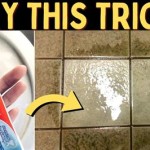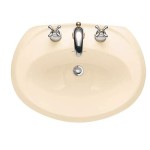Maintaining a watertight and aesthetically pleasing bathroom requires proper sealant maintenance, and one crucial question that often arises is whether it's acceptable to apply new sealant over old. Understanding the essential aspects of this topic is key to ensuring a successful sealing job and avoiding potential issues.
Essential Aspects of Applying New Bathroom Sealant Over Old
Before delving into the nuances of applying new sealant over old, it's important to note that the part of speech of the keyword "Can You Put New Bathroom Sealant Over Old" is a modal verb, indicating a possibility or permission. This implies that exploring both the feasibility and potential consequences of this action is necessary.
1. Removal of Existing Sealant
The initial and arguably most crucial step is to thoroughly remove the existing sealant. While it may seem like a tedious task, neglecting this step can lead to poor adhesion, diminished water resistance, and unsightly results. Utilizing a seal removal tool or utility knife, carefully scrape away the old sealant, ensuring complete removal.
2. Surface Preparation
Once the old sealant is eliminated, the surfaces where the new sealant will be applied must be meticulously prepared. Clean the area with a degreaser or rubbing alcohol to remove any lingering residue or contaminants that could impair adhesion. Allow the surfaces to dry completely before proceeding.
3. Selecting the Right Sealant
Choosing the appropriate sealant is paramount to the success of your sealing endeavor. Various types of sealants, such as silicone, acrylic latex, and polyurethane, serve different purposes and offer varying levels of durability and flexibility. Refer to the manufacturer's instructions or consult an expert to select the ideal sealant for your particular application.
4. Application and Tooling
With the sealant selected, apply it evenly and smoothly along the designated areas. Utilize a caulking gun to ensure consistent application. A sealant tool or your finger, dipped in soapy water, can be employed to smooth and shape the sealant for a neat and professional finish.
5. Curing and Maintenance
Allow the sealant ample time to cure before exposing it to moisture. Refer to the manufacturer's specifications for the recommended curing duration. Once cured, the sealant should form a watertight barrier, protecting your bathroom from moisture damage. Regular inspection and touch-ups may be necessary to maintain the sealant's effectiveness over time.
By adhering to these essential aspects, you can confidently apply new bathroom sealant over old, ensuring a watertight and aesthetically pleasing bathroom. Remember, patience and thorough execution are key to achieving successful results.
How To Remove And Replace Silicone Sealant
Freshen Up Your Bathroom By Replacing Old Silicone Sealant Bosman Plumbing

Can I Put New Shower Sealant Over Old Big Bathroom
How To Re Silicone A Mouldy Shower

Can You Caulk Over Old The Grout Medic Of San Diego Metro

Replacing The Old Sealant With New Silicone Steam Shower Generators Genaratoraccessoriess Tolo

How To Remove And Replace Silicone Sealant Diy Doctor
How To Re Silicone A Mouldy Shower
How To Replace Old Silicone Eys
How To Re Silicone A Mouldy Shower
Related Posts







